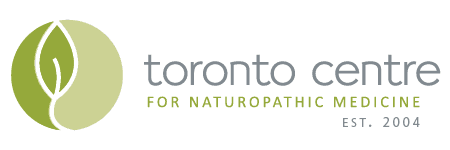Menopause
Menopause is well-managed using naturopathic medicine.
Menopause, or the permanent end of menstruation and fertility, is a natural biological process, not a medical illness. It usually occurs in a woman’s late-40s.
The hormonal changes associated with menopause can disrupt sleep, reduce energy and possibly trigger feelings of sadness and loss. Menopause is associated with osteoporosis, heart disease and weight gain.
It is important to consult a healthcare professional during both peri-menopause (the period beginning when the first symptoms of menopause occur) and post-menopause (the period following one year without a menstrual period) for preventive healthcare, as well as care of medical conditions that may occur with aging (e.g., osteoporosis).
Always seek professional healthcare if you experience vaginal bleeding after menopause.
Symptoms of Menopause
Possible symptoms of menopause include:
- Hair loss
- Decreased breast fullness
- Irregular menstrual periods
- Vaginal dryness
- Increased abdominal fat
- Hot flashes
- Disturbed sleep
Treatment of Menopause at Toronto Centre for Naturopathic Medicine
At Toronto Centre for Naturopathic Medicine, the goals of menopause treatment are to reduce or eliminate menopause symptoms, increase levels of depleted hormones naturally and prevent health conditions associated with menopause (e.g., osteoporosis, heart disease, weight gain).
Conventional treatment for menopause may include a variety of medications, including hormone therapies, selective estrogen receptor modulators, antidepressants, gabapentin, clonidine and bisphonates. These treatments may have short- or long-term side effects.
For this reason, you may choose to try natural treatment to possibly avoid use of conventional medications, or together with conventional medications in order to decrease dosages of conventional medications required to manage your menopause symptoms.
Naturopathic treatment of any chronic health concern must be recognized as a process that involves:
- Identifying specific treatment goals
- Development by your naturopathic doctor, of a thorough understanding of all factors affecting your health, including physical, psychological, emotional and lifestyle factors
- Development of a comprehensive treatment plan
- Implementation and maintenance of that plan through periodic monitoring and adjustment
At Toronto Centre for Naturopathic Medicine, a typical approach to treating menopause may be to:
- Identify and address underlying factors in your lifestyle (e.g., stress, poor diet, sedentary lifestyle, disrupted sleep, smoking) that may be contributing to your menopause symptoms
- Minimize specific symptoms (e.g., hot flashes) using acupuncture
- Reduce symptoms in general by “balancing” hormones botanical (herbal) medicines
- Address or prevent aging-related health conditions (e.g., osteoporosis)
Where appropriate, a number of therapeutic options are available, to be used alone, or more often in a complementary fashion, including:
- Nutritional counseling
- Nutritional supplements
- Metabolic detoxification protocols
- Botanical (herbal) medicines
- Acupuncture
- Homeopathy
- Bowen Therapy
- Suikodo™
- Hydrotherapy
- Exercise prescription
- Relaxation (meditation) training
- Lifestyle medicine and counseling
Treatments provided by naturopathic doctors are covered by most extended healthcare plans.
References
Menopause [Internet]. Mayo Foundation for Medical Education and Research; [cited 2009 Feb 18]. Available from: http://www.mayoclinic.com/health/menopause/DS00119.


